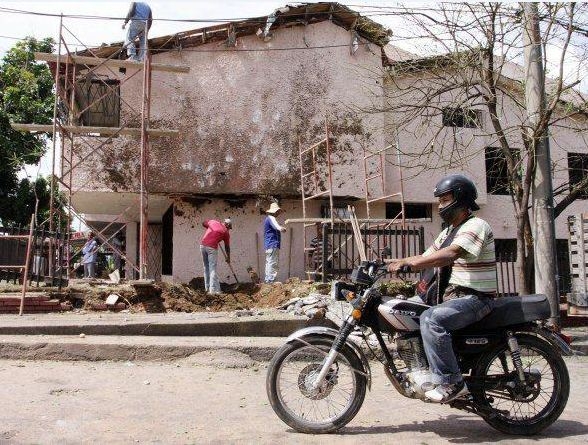Authorities have dismantled a band allegedly contracted by the FARC to plant explosive devices in Bogota shops in exchange for drugs and cash, in a case that further blurs the lines between the rebels and purely criminal groups.
Seven men stand accused of working for a criminal band that was contracted by the Revolutionary Armed Forces of Colombia (FARC) to place explosives in stores to pressure owners to pay extortion fees demanded by the guerrilla group, reported the Prosecutor General’s Office. The men were charged with terrorism, rebellion, drug trafficking and extortion, among other crimes, but have not accepted the charges.
The band, known as Los Pitufos (The Smurfs), performed at least six attacks in the Colombian capital and stored the explosives for the FARC. In return, the rebels paid the group in drug and cash, said prosecutors.
InSight Crime Analysis
This is not the first time the FARC have been accused of contracting out to criminal gangs. Most notably the band of hitmen responsible for the bombing of a senior politician last year are believed to have been contracted by the guerrillas.
The practice of contracting local criminals as hired muscle further blurs the lines between the FARC as an insurgency and as a criminal operation. The issue is made even more complicated by the FARC’s relationships with purely criminal groups. The rebels links to BACRIM (“bandas criminales” or “criminal bands”) groups such as the Urabeños and the Rastrojos now appears to have moved beyond supplying them with coca base and in some regions also involves exchanging arms, intelligence, supplies and military training.
SEE ALSO: FARC, Peace, and Possible Criminalization
As this case shows, the reason there is now so much overlap between the rebels and criminals is finances. Extortion is a major earner for all of Colombia’s criminal groups — guerrillas, BACRIM and street gangs. As noted by InSight Crime, the FARC and the BACRIM also share other very similar strategies to raise money, including drug trafficking and controlling illegal mining. The difference is whether this money is funneled into a “cause,” or war chest, or is for personal gain. However even this ideological-criminal distinction is not always clear.

